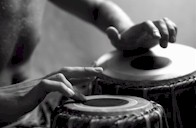
Law enforcement personnel tend to be all too familiar with contemporary tribalism in contexts other than athletic ones.
Most urban cops recognize that street gangs confer on their members the same senses of belonging, identity, and increased significance in the larger world through group association that more traditional types of tribes do.
What police officers may not be quite so quick to realize is the degree to which their own profession can be similarly tribal. I once heard a speaker at a gathering of detectives entertain and challenge his fellow cops by enumerating what they had in common with gang members--starting with wearing distinctive clothing, and moving on through a long list of behaviors and attitudes, such as a tendency not to let challenges go unanswered.
I found this even more interesting when I learned a bit of the history of relations between the two largest law enforcement agencies where I lived, the Los Angeles Police Department (LAPD) and the L.A. County Sheriff’s Department. To say that the two had a tradition of rivalry would be like observing that sometimes dogs and cats don’t play nicely together.
To give one example, Chinatown was once an after-hours cops’ playground and watering hole, where both law enforcement agencies had particular bars they frequented. Both groups were so territorial about “their” places that Sheriff’s deputies were subject to official disciplinary action for just walking in the door of a bar frequented by the LAPD. (The Sheriff's Department had deemed there to be no plausible reason for entering such a place other than wanting to start a fight.)
If this isn’t tribalistic turf behavior, what is?


